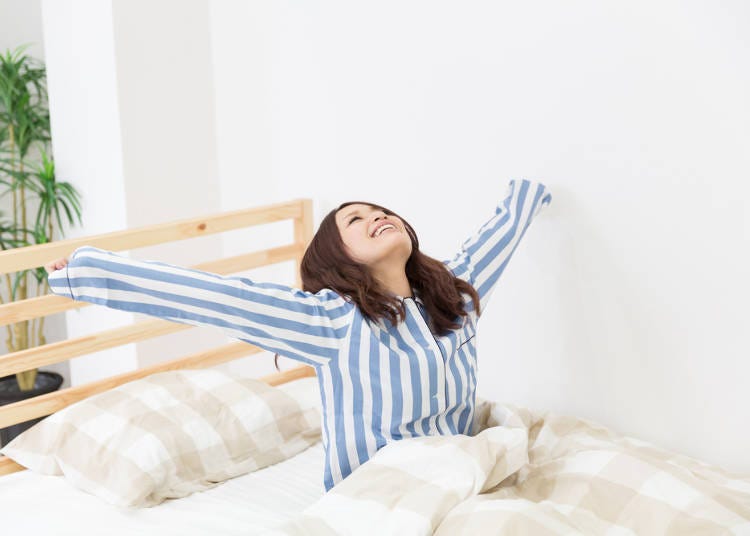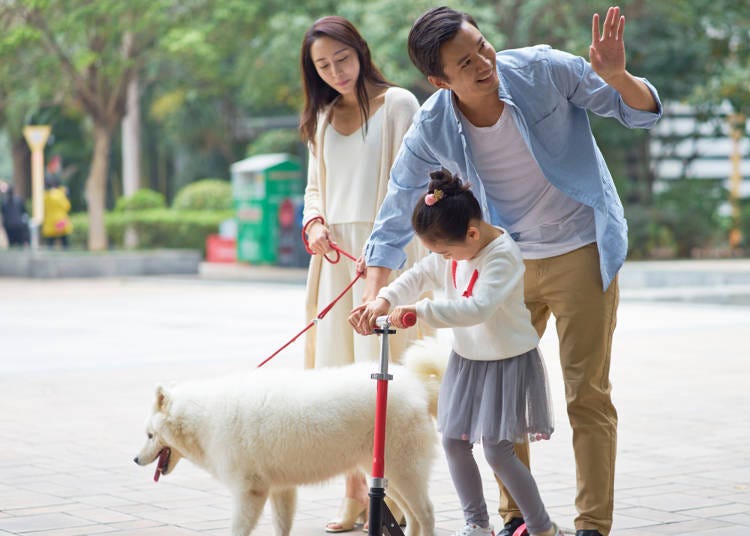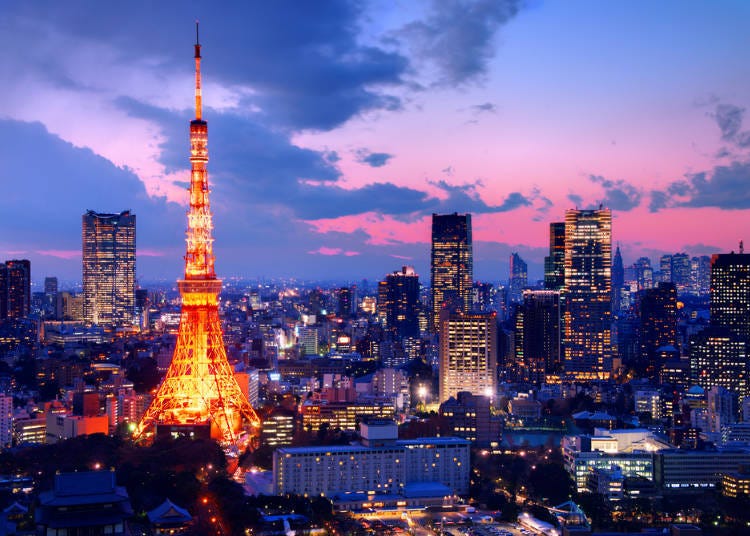
Think 'Ohayo' Is Just for Mornings? How to Greet People Naturally in Japan
- Written by: LIVE JAPAN Editor
Greetings are more than just words—they're the first step in connecting with others, whether you're at home or traveling abroad. In English, we’re used to saying “good morning,” “good afternoon,” or “good evening,” and Japanese has similar expressions like “おはよう (ohayou),” “こんにちは (konnichiwa),” and “こんばんは (konbanwa).”
But if you’re visiting Japan, you might be surprised to learn that these greetings aren’t used in exactly the same way as their English counterparts. The timing and social context behind them can be quite different. In this guide, we’ll walk you through how and when to use these common Japanese greetings, highlight key differences from English, and offer practical tips so you can sound natural and avoid common faux pas while exploring Japan.
“Ohayou” and “Good Morning”

In Japanese, “おはよう (ohayou)” is the equivalent of “good morning” and is pronounced much like “oh-hai-yo.” It’s typically used from sunrise until around noon. In daily life, it’s common to say “ohayou” to classmates or coworkers upon arriving at school or the office, especially within the first few hours after waking up.
That said, there’s no strict cut-off. Some people stop using it after 11 AM, while others might still say it until noon. So while “ohayou” closely matches the meaning of “good morning,” the timing can vary depending on the person and context.
If you’re staying at a hotel in Japan, don’t be surprised if staff greet you with a polite “おはようございます (ohayou gozaimasu)” as you head to breakfast. A cheerful “ohayou” in return is a polite and natural way to start your day.
“Konnichiwa” and “Good Afternoon”

The Japanese greeting “こんにちは (konnichiwa)” is often translated as “good afternoon,” but it’s actually closer in meaning to “hello.” It’s the standard way to greet someone you don’t know well or when meeting someone for the first time. Since there’s no direct equivalent of “good afternoon” in Japanese, “konnichiwa” is commonly used from around 11 AM or noon until sunset.
Because it works as both “hello” and “good afternoon,” you’ll hear “konnichiwa” frequently during the day in Japan. It’s a handy phrase to remember when sightseeing—whether you’re entering a shop or passing someone during the day, saying “konnichiwa” is a friendly and appropriate way to say hi.
Just be careful not to use it too early in the morning—saying “konnichiwa” first thing might earn you a puzzled look!
“Konbanwa” and “Good Evening”

The greeting “こんばんは (konbanwa)” is best understood as “good evening” rather than “good night.” It’s used after sunset, typically from around 6 PM until late evening, and is common when meeting someone at night—whether at a restaurant, bar, shop, or hotel.
Unlike “good night,” which in English usually signals bedtime, “konbanwa” is simply a polite evening greeting. You’ll often hear it in izakaya (Japanese pubs) or when entering a business in the evening. If someone greets you with “konbanwa,” a friendly “konbanwa” in return is perfectly appropriate.
There’s no hard rule on when to stop using it, but after midnight, it generally falls out of use. If you’re saying good night before bed, the proper Japanese phrase would be “おやすみ (oyasumi)” or the more polite “おやすみなさい (oyasuminasai).”
More Than Just Words
From morning to night, Japanese has a variety of greetings that reflect the time of day—often following the rhythm of the sun. While the specific phrases change from “ohayou” to “konnichiwa” to “konbanwa,” the purpose remains the same: to warmly connect with others.
So whether you’re greeting someone at breakfast or entering a shop in the evening, the key isn’t just saying the right phrase—it’s saying it with a smile and positive energy. That’s what truly leaves a good impression.
The LIVE JAPAN editorial team is a multinational group made up of native editors who have lived in Japan for over five years and Japanese editors who love to travel. Together, we share the best of Japan, offering cultural insights, historical context, event updates, and travel-friendly deals, to support your journey every step of the way.
*Prices and options mentioned are subject to change.
*Unless stated otherwise, all prices include tax.
Popular Tours & Activitiess
Recommended places for you
-
Goods

Yoshida Gennojo-Roho Kyoto Buddhist Altars
Gift Shops
Nijo Castle, Kyoto Imperial Palace
-

Kambei Sannomiyahonten
Yakiniku
Kobe, Sannomiya, Kitano
-

ISHIDAYA Hanare
Yakiniku
Kobe, Sannomiya, Kitano
-

Jukuseiniku-to Namamottsuarera Nikubaru Italian Nikutaria Sannomiya
Izakaya
Kobe, Sannomiya, Kitano
-

Kanzenkoshitsuyakinikutabehodai Gyugyu Paradise Sannomiya
Yakiniku
Kobe, Sannomiya, Kitano
-
Appealing

Rukku and Uohei
Izakaya
Sapporo / Chitose
-

Top 3 OSHI MAPs for the Best Matcha and Sweets in Tokyo
by: Guest Contributor
-
Ad

The Latest Guide to "Tourism Mobility": Traveling Japan More Freely. What exactly are Japan’s version of ride-sharing and transit deserts?
-

To the Holy Land of Kawaii! Odakyu Tama Center Station Is Becoming a Dreamy Sanrio Wonderland
by: Guest Contributor
-
Ad

What Makes Japanese Yakiniku So Darn Good? Guide to Cuts, Heat, and Wagyu Know-How
-

Farewell, Heavy Suitcases! Keisei Ueno’s New Service Makes Your Last Day in Tokyo Totally Hands-Free
by: Guest Contributor
-
Ad

Japan’s Land of Yokai Monsters and Spooky Stories! A Deep Journey to Mysterious San’in (Tottori & Shimane) for Seasoned Travelers
-

Under The Tracks: Introducing 5 of Tokyo's Hot New Trendy Spots!
-

Kansai-Ben: 18 Fun Kansai Dialect Phrases To Use When Visiting Osaka
by: WESTPLAN
-

'Stop With the Personal Questions!' - Things That Shocked British People When Visiting Japan
-

Japan's Drinking Culture is so Different! Why Are There So Many 'Standing Bars' in Japan?
-

Top 5 Things to Do in Hokkaido's Biei and Furano Area: Shirogane Blue Pond, Lavender Fields, And More!
-

Togatta Onsen Guide: Best 6 Places to Indulge Yourself in Miyagi Prefecture's Magical Hot Springs Resort Village
- #best sushi japan
- #what to do in odaiba
- #what to bring to japan
- #new years in tokyo
- #best ramen japan
- #what to buy in ameyoko
- #japanese nail trends
- #things to do japan
- #onsen tattoo friendly tokyo
- #daiso
- #best coffee japan
- #best japanese soft drinks
- #best yakiniku japan
- #japanese fashion culture
- #japanese convenience store snacks
















